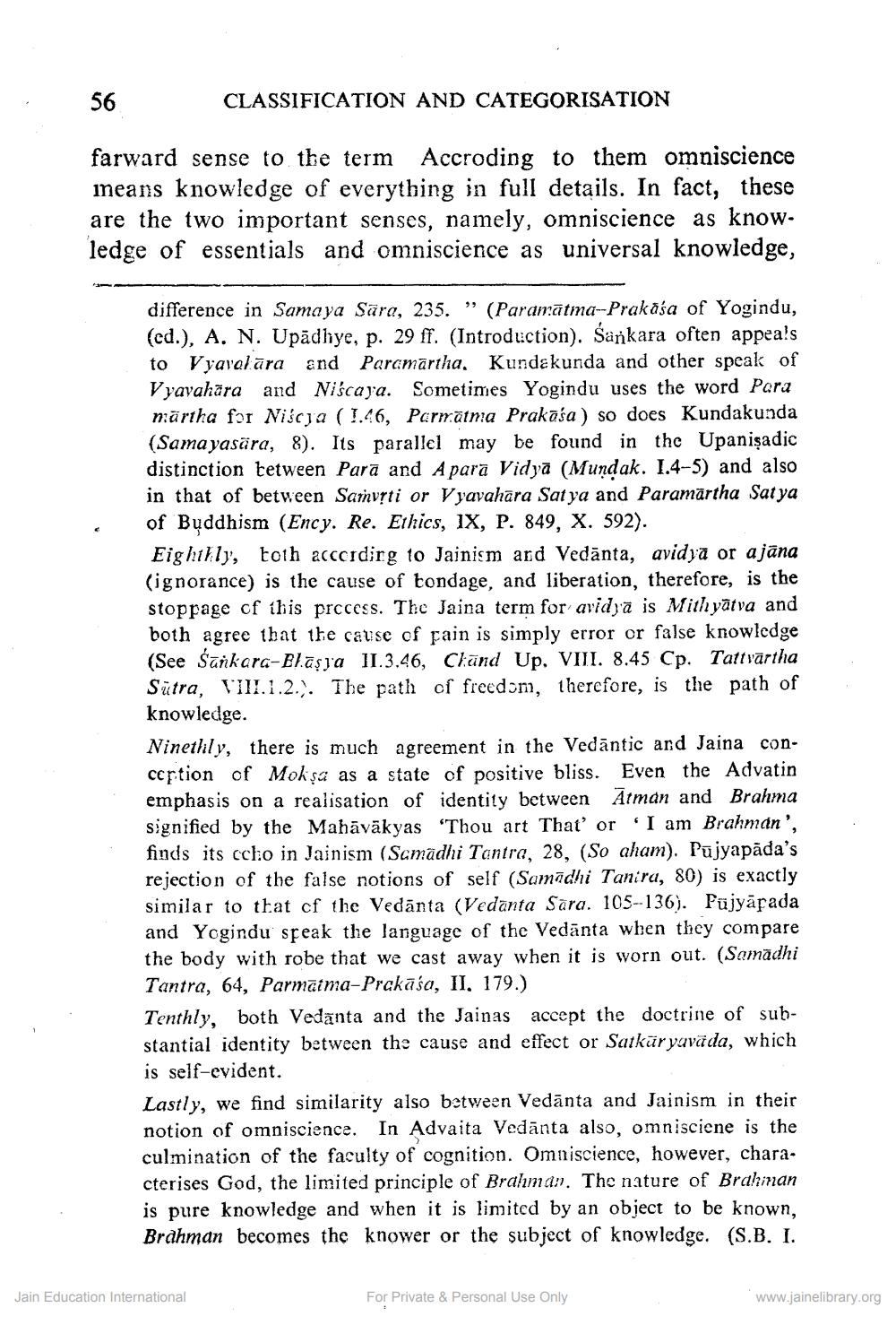________________
56
CLASSIFICATION AND CATEGORISATION
farward sense to the term Accroding to them omniscience means knowledge of everything in full details. In fact, these are the two important senses, namely, omniscience as knowledge of essentials and omniscience as universal knowledge,
pain of
difference in Samaya Sāra, 235. ” (Paramātma--Prakāśa of Yogindu, (ed.), A. N. Upadhye, p. 29 ff. (Introduction). Sankara often appeals to Vyavolāra and Parcmartha, Kunda kunda and other speak of Vyavahara and Niscaya. Sometimes Yogindu uses the word Para närtha for Niścja (1.46, Parmatma Prakasa) so does Kundakunda (Sama yasära, 8). Its parallel may be found in the Upanişadic distinction between Parā and A para Vidya (Mundak. 1.4-5) and also
that of between Samvști or Vyavahara Satya and Paramartha Satya of Buddhism (Ency. Re. Ethics, IX, P. 849, X. 592). Eighthly, both accordirg to Jainism and Vedānta, avidyā or ajāna (ignorance) is the cause of bondage, and liberation, therefore, is the stoppage of this process. The Jaina term for avidyā is Mith yātva and both agree that the cause of pain is simply error or false knowledge (See Sankara-Blasia 11.3.46, Clānd Up. VIII. 8.45 Cp. Tattvärtha Sutra, VII!.1.2.). The path of freedom, therefore, is the path of knowledge. Ninethly, there is much agreement in the Vedāntic ard Jaina conception of Moksa as a state of positive bliss. Even the Advatin emphasis on a realisation of identity between Atman and Brahma signified by the Mahāvākyas 'Thou art That' or 'I am Brahman', finds its ocho in Jainism (Samadhi Tantra, 28, (So aham). Pujyapāda's rejection of the false notions of self (Samādhi Tanira, 80) is exactly similar to that of the Vedānta (Vedanta Sara. 105-136). Füjyāpada and Yogindu speak the language of the Vedānta when they compare the body with robe that we cast away when it is worn out. (Samadhi Tantra, 64, Parmaima-Prokāśa, II, 179.) Tenthly, both Vedanta and the Jainas accept the doctrine of substantial identity between the cause and effect or Satkūryavāda, which is self-evident. Lastly, we find similarity also between Vedānta and Jainism in their notion of omniscience. In Advaita Vedānta also, omnisciene is the culmination of the faculty of cognition. Omniscience, however, characterises God, the limited principle of Brahman. The nature of Brahinan is pure knowledge and when it is limited by an object to be known, Brahman becomes the knower or the subject of knowledge. (S.B. I.
Jain Education International
For Private & Personal Use Only
www.jainelibrary.org




